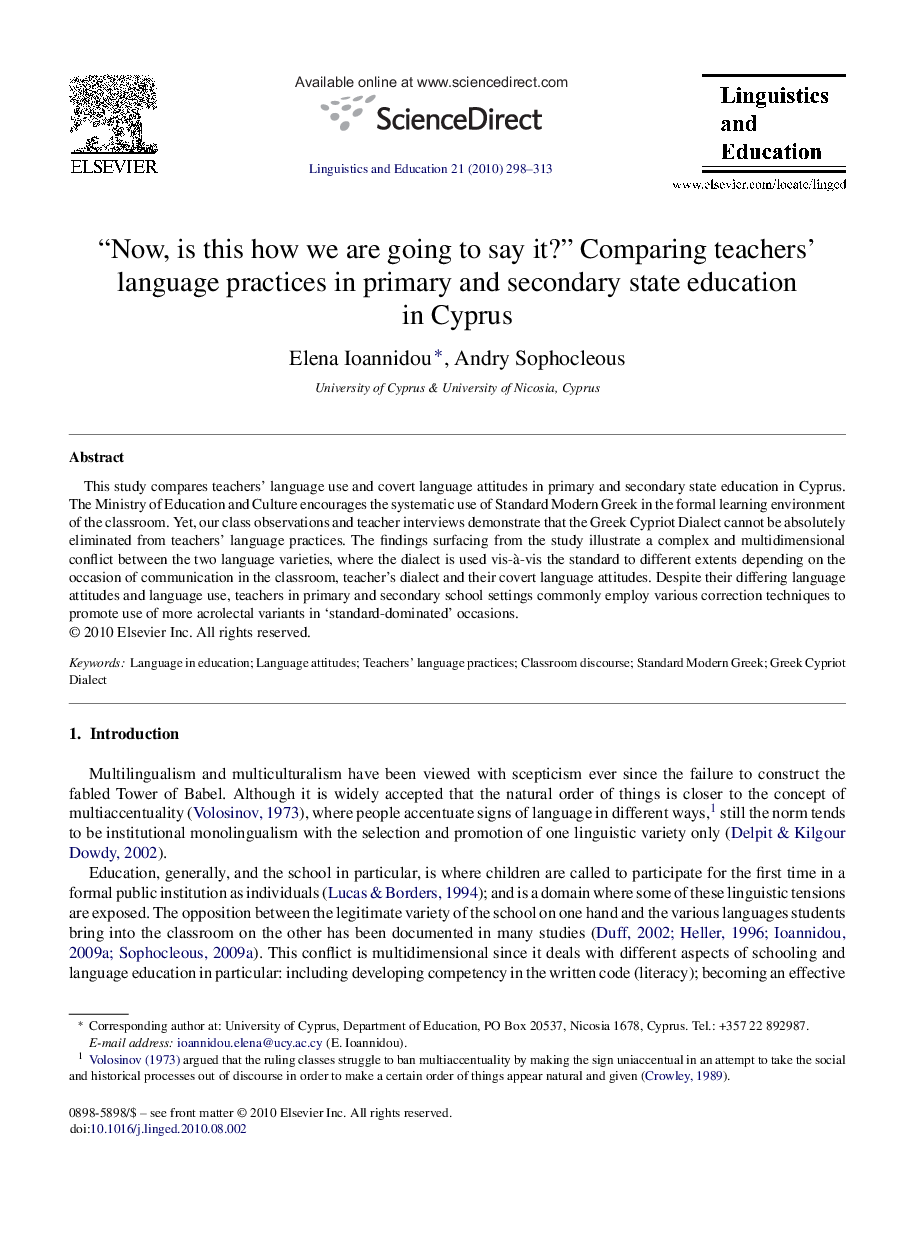| Article ID | Journal | Published Year | Pages | File Type |
|---|---|---|---|---|
| 366456 | Linguistics and Education | 2010 | 16 Pages |
This study compares teachers’ language use and covert language attitudes in primary and secondary state education in Cyprus. The Ministry of Education and Culture encourages the systematic use of Standard Modern Greek in the formal learning environment of the classroom. Yet, our class observations and teacher interviews demonstrate that the Greek Cypriot Dialect cannot be absolutely eliminated from teachers’ language practices. The findings surfacing from the study illustrate a complex and multidimensional conflict between the two language varieties, where the dialect is used vis-à-vis the standard to different extents depending on the occasion of communication in the classroom, teacher's dialect and their covert language attitudes. Despite their differing language attitudes and language use, teachers in primary and secondary school settings commonly employ various correction techniques to promote use of more acrolectal variants in ‘standard-dominated’ occasions.
Research highlights▶ Different use of Standard Modern Greek and of the Greek Cypriot Dialect by the teachers in the classroom depending on the formality / informality of the situation. ▶ Primary school teachers exhibited more code-mixing between the two varieties in classroom, compared to secondary school teachers who exhibited more code-switching. ▶ All the teachers observed exhibited three strategies for “correcting” the usage of the dialect by students in “standard dominated occasions”: repetition, prompting and direct correction. ▶ Discrepancies between monolithic and politically defined language policies and what is happening in practice in teachers’ discourse.
